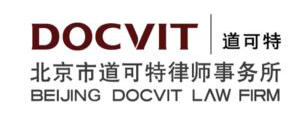The new Company Law promotes the transformation of corporate governance from shareholder primacy to director primacy. This imposes governance responsibility on entrepreneurs such as directors, supervisors, officers (DSOs) and actual controllers of a company, increasing their risk of performing duties with their personal property at stake. Therefore, reducing the risk of entrepreneurs and their families facing compensation over corporate governance is of great concern.
Legal liabilities

Partner
DOCVIT Law Firm
Civil liability. The new Company Law not only strengthens the duties of loyalty and diligence of DSOs, maintenance of capital adequacy, duty performance damages, etc. It also identifies controlling shareholders and actual controllers with excessive control over directors and actual controllers as de facto directors. These individuals bear the duties of loyalty and diligence and are jointly and severally liable for their actions.
In judicial practice, civil compensation by directors continuously breaks the ceiling. In Siman Tewei Xianshi Technology v Hu Qiusheng et al, directors were found jointly and severally liable for RMB30 million for negligence of duty on calling up capital contributions. In the case of Investors v Kangmei Pharmaceutical, some directors were found jointly and severally liable for nearly RMB2.46 billion.
Administrative liability. The new Company Law may impose penalties of RMB300,000 on directly responsible officers and other directly responsible persons. This can rise up to RMB10 million under the Securities Law.
Criminal liability. On implementation of amendment (XII) to the Criminal Law, DSOs may be subject to criminal liabilities for illegally engaging in similar businesses or illegally seeking profits for relatives and friends. Under the provisions on capital contribution to be fully paid in a prescribed period, the crime of false capital contribution or withdrawal of contributed capital may be activated.
Avoiding risks

Counsel
DOCVIT Law Firm
Common practices to avoid the impact of duty performance risks on families include taking out directors and officers liability (D&O) insurance, setting up family trusts and faking a divorce. But all have major pitfalls.
Limitations and undesirable effects of D&O insurance. This insurance has its limitations, with many exclusion clauses narrowing coverage and failing to effectively transfer duty performance risks. Provisions on company compensation cause lack of incentives to purchase the insurance. Moreover, the existence of insurance exacerbates the risk of moral hazard in the performance of duty. Especially when directors are also shareholders and officers, the goodwill bubble may increase; making internal supervision ineffective and leading to difficulty in effectively assessing and controlling risks, thus encouraging corporate opportunism.
Challenges against family trusts. While characterised by risk isolation, value preservation and appreciation, wealth inheritance and confidentiality, family trusts are also naturally accompanied by challenges such as high entry thresholds, expensive trust fees and property co-owners’ exercise of rescission rights. Besides being in a portfolio with insurances, family trusts alone may struggle to provide leverage functions.
Risks of false divorce. False divorce is not a legal concept and in practice it means that a couple divorce to transfer or hide property, avoid debts or legal liabilities, or for tax planning, while continuing to live together. Once the divorce is registered, they no longer have a statutory duty of loyalty, right of inheritance from each other and shared marital property. If they later restore their marriage, their property from divorce becomes premarital property.
False divorce can result in the loss of both spouse and property, as well as potential tax risks. According to article 20 of the Several Opinions on Legally Punishing Evasion of Enforcement issued by the Supreme People’s Court, individuals who engage in property transfers through divorce or property separation to evade enforcement may still be subject to enforcement action.
Mitigating risks
The above-mentioned practices can’t address root causes. Reducing duty performance risks also requires strict legal and compliant corporate governance.
Specialised legal checkup. This means systematically diagnosing and investigating the company’s basic situation, governance structure, articles of association, assets, labour management, business processes and internal control policies to comprehensively screen and assess existing risks and formulate rectification schemes and plans.
Shareholder reform. This means assessing the company’s value, adjusting registered capital and the capital contribution period, or termination or dissolution of the company.
Reform also involves:
- Avoiding the risk of capital contribution failure, loss of shareholders’ rights and appended enforcement;
- Repairing capital contribution defects, sorting out shareholders’ transactions and borrowings, and making the capital contribution by a debt-to-equity swap or after a company’s repayment, and urging capital contributions by other shareholders;
- Optimising the shareholding structure, adjusting the structure of one-person limited liability companies and shareholdings by husband and wife and other close relatives, and isolating the risk of family-enterprise confusion, avoiding risk overflowing to the actual controller due to vertical or horizontal disregard of corporate personality; and
- Amending articles of association to clarify powers, obligations and responsibilities of DSOs, restoring the company to the mode of governance by professional managers under the authorisation of shareholders’ meeting to avoid shareholders becoming de facto directors.
Key DSO duties. DSOs shall strictly fulfil their duty of loyalty to avoid conflicts of interest with the company, misappropriation of the company’s property or funds, disclosure of confidentiality illegally, inappropriate acquisition of business opportunities belonging to the company and conducting illegal related party transactions.
They should also:
- Pay attention to provisions on proactive disclosure and avoidance from voting;
- Strictly fulfil the duty of diligence, make independent decisions in the best interests of the company according to the new Company Law, articles of association and authorisation of the company, make independent decisions based on business judgement rules, and exercise reasonable care as managers;
- Timely disclose shareholders’ violation of laws, and be responsible for inaction;
- Develop the habit of keeping evidence;
- Conduct audits during the term and on departure to identify and rectify issues promptly, preventing responsibility from being undifferentiated due to work handover. Note that resignation does not absolve one from responsibilities and directors should fulfil legal obligations until new directors assume their roles; and
- Require the company to purchase sufficient D&O insurance.
Improving internal control mechanisms. Internal control mechanisms shall be set up to avoid management override. Members of family-owned enterprises should maintain restraint and rationality; easing conflict of interest among family members with modern corporate governance mechanisms, and avoiding excessive influence of patriarchy and a bureaucratic mind on compliance of corporate governance.
In addition to risk prevention and control, it is also necessary to improve emergency response mechanisms for risks through joint efforts of in-house and external legal advisers to mitigate the destructive force of risks by timely detecting and rectifying problems and loopholes of companies to form a closed loop of optimisation and improvement.
Shen Youfu is a partner and Wang Lei is a counsel at DOCVIT Law Firm.

56/F Fortune Financial Center
No.5 East Third Ring Middle Road
Beijing 100020, China
Tel: +86 10 8586 1018
Fax: +86 10 8586 3605-8006
E-mail: shenyoufu@dtlawyers.com.cn
wanglei@dtlawyers.com.cn
www.dtlawyers.com.cn






















